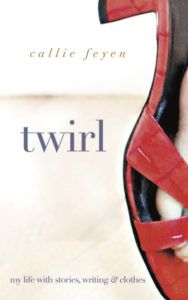I was helping a first-grader read David Shannon’s book David Gets In Trouble, when I recalled a poetry workshop Tania Runyan gave titled “Perfecting the Free Verse Line.” In it, I learned about end words, a new concept for me. Now, noticing which words close a line helps me appreciate a free verse poem.
I’m frequently on the hunt for a book that captures a child’s attention and also helps that child learn to read. It’s a tall order for a book. The sentences should be rather short and the words not too difficult so the child won’t become frustrated. The pictures need to be stellar, and the story must invite the reader in, most of all Otherwise reading becomes something like a fire drill: You’ve memorized what to do, you know where to go, but this is only a drill, kids. We are only learning this in case of an emergency.
So when I find a story that fulfills all these requirements, I try to figure out how the author did it. In David Shannon’s case, I think it begins with his colorful, vivacious pictures and the main character, David, who is also colorful and vivacious. Most students know and love David from No, David!, so when they see the cover of Shannon’s next book, they’re delighted to greet their boisterous friend.
“Oh, I know all about this guy,” a student will say turning the page and getting his finger ready to point to the words, “he always forgets his pants.”
Indeed, Shannon knows what’s hilarious to a first-grader (and basically most humans — forgetting pants is never not funny).
The sentences are short but they tell a powerful story, one children can relate to. David makes excuse after excuse for things like why there’s a clawed-out piece missing from a cake, why the window is broken, and yes, why he isn’t wearing pants. Shannon’s pictures and words work together to help a child read but also help them connect with the story.
I visit several classrooms daily, and so I tend to end up listening to the same story several times. If it’s a good one, I don’t mind. There’s always something new to explore, or to quote Runyan: “There’s always something that you can experiment with and try.”
Maybe it was because of the rhythm, but after a while, this story began to sound like poetry. That’s when I remembered Runyan’s workshop and decided to see what I could find out about how Shannon used end words.
Here they are:
fault
to
accident
to
forgot
homework
it
hungry
it
slipped
it
me
me
me
sorry
mom
In her workshop Runyan offered some guidelines for end words. They should have tension, wonder, and mystery. They should have resonance — perhaps a double meaning too. It’s best to stay away from articles and prepositions. My favorite advice was this: The end words should form a mini poem.
Granted, there are some “it’s” and “to’s” in this one, but I think they contribute to the rhythm of this mini poem and highlight the bigger, more meaningful words. I think of the those “to’s” and “it’s” as matches that light the candle.
I think the three “me’s” are significant as well. In the story David denies what he did twice, but the third “me” is an admission, hence, the “sorry” and “mom” that follow. Three signifies something whole, something unbreakable. This concept is illuminated on the last page when David says he is sorry, his mom cups his head in her hand, and David falls asleep contentedly.
I didn’t point out the end words to the 6- and 7-year-olds that read David Gets In Trouble, though it’s a concept that’s waiting for them when they’re ready. For now I think reading the book independently, laughing with David as he gets in trouble, rooting for him as he apologizes, and knowing how much love there is in the world is enough.
Try It
This week write a free verse poem and focus on end words. Do they make a mini poem? Use Runyan’s guidelines to help you revise.
Featured Poem
Thanks to everyone who participated in last week’s poetry prompt. Here’s one from Richard Maxson we enjoyed:
Love Song of the Dandelion
After the fireflies departed,
the days grew short and started
to set our suns aloft in gray;
the sky came down to lay
in the leaves of hardwood—
copper-hot and waning—
autumn’s bright descending ending
Photo by Michelle Brouwer Creative Commons, via Flickr. Post by Callie Feyen.
Browse more poetry prompts
A Writer’s Dream Book
“Callie Feyen has such a knack for telling personal stories that transcend her own life. In my years in publishing, I’ve seen how hard that is—but she makes it seem effortless, and her book is such a pleasure. It’s funny, it’s warm, it’s enlightening. Callie writes about two of the most important things in life—books and clothes—in utterly delightful and truly moving ways. I’m impressed by how non-gimmicky and fresh her writing is. I love this book.”
- Poetry Prompt: Courage to Follow - July 24, 2023
- Poetry Prompt: Being a Pilgrim and a Martha Stewart Homemaker - July 10, 2023
- Poetry Prompt: Monarch Butterfly’s Wildflower - June 19, 2023


Megan Willome says
Trying All Week to Book a Reservation
We are not meant for Utopia
you and I. We know
better.
No grove of maples lost
beside the Sabinal: palm trees.
No rare bird: seagulls so common
along the coast. So come,
go where we’ve gone
before. Settle in, settle
down to business.
Katie says
Callie,
I think you are exactly right: “For now, I think reading. . .laughing. . .rooting. . .and knowing how much love there is in the world is enough.”
Thank you for this post:)
Gratefully,
Katie